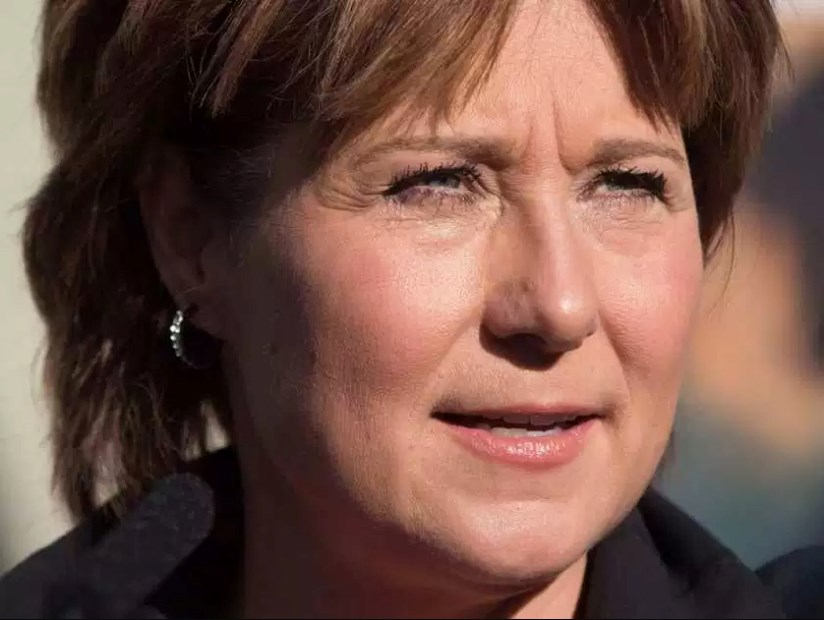B.C. Premier Christy Clark says her own experience with sexual violence washed over her when she stood up in the legislature last month and supported a bill calling for clear guidelines in dealing with sexual assault and misconduct at public post-secondary institutions.
“As I sat in my chair on the floor of the legislature, it struck me: I knew all too well why women stay silent. For over 35 years, I’ve been one of them,” wrote Clark, in an essay published Thursday in the Vancouver Sun.
“As I got up to answer, I decided that our government would pass the legislation. I knew it was the right thing to do.”
In her essay, the premier recalled how she was attacked when she was 13. While walking to work, a stranger pulled her off the sidewalk into bushes. “There was no doubt in my mind that he wanted to hurt me,” she said. She managed to get away when her attacker lost his footing.
Tracy Porteous, executive director of Ending Violence B.C., applauded the premier for speaking out on sexual assault. “The premier has really shown a great level of leadership,” she said. Porteous said too many women remain silent about sexual abuse — out of shame or fear — only to live with the trauma.
It’s a crime that’s deeply dehumanizing and humiliating. Often, the reaction from the first person a victim tells may determine how the victim deals with it the rest of their lives, Porteous said.
The private member’s bill was introduced by B.C. Green Party Leader Andrew Weaver on March 8 in reaction to criticism about the reporting of sexual assaults at the University of Victoria and other campuses.
On March 17, asked if she supported sexual-assault policy legislation for colleges and universities and what the timeline would be, Clark said the issue was urgent, noting a rapist’s best friends are silence, shame and the failure of authorities to act.
Weaver did not discover until Thursday what prompted Clark’s response in the legislature that day. “This is a pervasive issue, not only at post-secondary campuses, but throughout society as a whole,” he said in an email. “I think it signals the premier might be open to further support beyond this bill.”
The Sexual Violence and Misconduct Policy Act was passed in May. It gives B.C. post-secondary institutions one year to put in place specific sexual violence policies that set out clear procedures for responding to complaints and identify support services for victims.
Janni Aragon, a political scientist and adjunct assistant professor at the University of Victoria, said Clark’s essay is powerful and important. “It speaks volumes that she shared this,” Aragon said. “What it will do is demonstrate how pervasive sexual assault is in the larger population. I think it will allow other women to come forward to say: This happened to me as well.”
Clark took a risk in speaking out in that some will want to suggest it was politically convenient — the undertone being some part of it’s not true, which is exactly how survivors of sexual assault are often revictimized, Aragon said.
“It was quite impactful and will rightly get attention,” she said. “We need to get to a point in which people realize that they need to believe women and realize the pervasiveness of sexual assault.”
Porteous said the premier now needs to ensure there are services and supports and training available for those outside of universities and colleges “so when survivors follow the premier and disclose, there is a safety net and a bunch of services for them to get help from.”
UVic political scientist Michael Prince said the revelation by the premier raises the question of whether it will shape her image and begin a narrative leading into the May 2017 election. It also raises the political question, Prince said, of whether Clark will now “start a larger conversation” about sexual assault and sexism in society and provide meaningful services and support.



